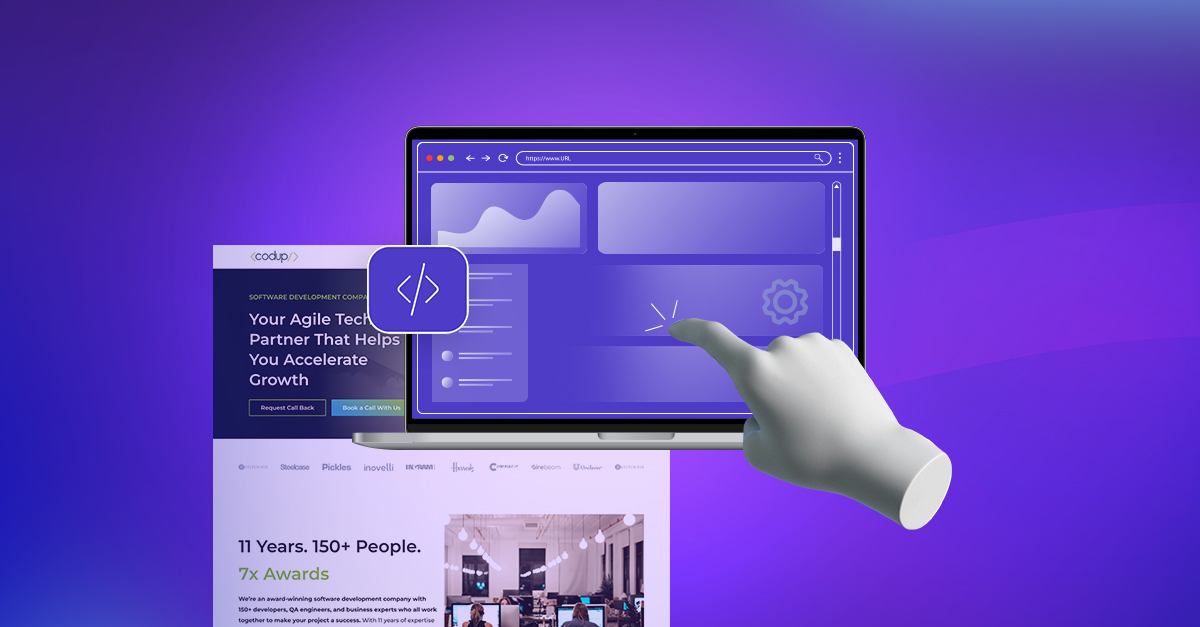Django Vs Laravel: An In-Depth Breakdown of Two Powerful Frameworks

Django vs Laravel. Two powerful frameworks of two powerful programming languages.
There are differences between them, and similarities.
In the world of tech, these differences are very much debated. Of course, for the right reasons since both these frameworks matter for a variety of different reasons.
For newbie developers looking to learn a framework, both these frameworks present the ideal choice. For CTOs looking to implement a client or in-house project though, things become interesting.
Which framework should they build it on?
Like everything in tech, using one software system or other boils down to preference. It’s the same case for an ecommerce store, or a programming language.
So, the question then becomes…
Table of Contents
- Why Write a Comparison Between Django and Laravel?
- Django – Python’s trump card
- Laravel – Built on PHP
- Django vs Laravel – The Essential Advantages and Disadvantages of Both Frameworks
- Django vs Laravel: Performance
- Django vs Laravel in Architecture
- Django vs Laravel: Scalability
- Django vs Laravel in Testing
- Django vs Laravel in Database Support
- Django vs Laravel: Community Support
- Final Words
Why Write a Comparison Between Django and Laravel?
Decision making. Period.
Both of these frameworks are equally suitable for a variety of different programming tasks.
In an event where you get a software project that can be delivered using any of the two frameworks, it becomes important that you know how to differentiate.
Besides that, there are also issues of scalability, ease of deployment, and the general popularity of the framework to use.
Yes, popularity matters a lot as well.
We’ve seen this with JavaScript frameworks that have come and gone without developers ever knowing anything about them. In such decisions, it’s important to get an in-depth look at each framework, and then decide which is the best one.
Read Also:
- Java vs .NET – Which is Better for Software Developers? A Beginners Guide
- PHP vs JavaScript For Web Development
We’ve gone on a tangent right in the introduction, we know. But it was important to have this conversation beforehand.
So, let’s not waste your time and get into the meat of the subject.
Django – Python’s trump card
Django’s been around since the start of Python itself. It’s an open-source website development framework.
Like all things Python, the primary benefit of using Django is that it removes the mundane and unnecessary from development workflow.
It’s got a simple and easy to learn syntax.
This point alone makes it scalable, allowing you to create complete applications, without building anything from scratch.
Its inert nature, features, and its computability with most scripting languages make it an ideal programming framework.
The simplicity of the syntax makes Django fit well with the likes of companies like Instagram, Bitbucket, Mozilla, and YouTube.
Each of these giants need scalability, simplicity, and quicker deployment due to the sheer size of their operations.
Laravel – Built on PHP
Built on PHP.
That epithet sounds a bit of a generalization, doesn’t it?
It’s a perfect fit in reality since it’s one of the prime open-source web frameworks for the PHP platform.
Laravel is written in PHP, and this already proves its supremacy, because the founding programming language is used in the world’s most efficient legacy systems today.
But let’s talk about Laravel.
Its primary benefit is that it simplifies coding on PHP with its already handy skeleton of PHP code. In addition to that, you can build callable applications with a well-defined architecture, and efficient backend logic. Creating full-fledged web applications has never been easier than with Laravel.
Owing to WordPress’ popularity with PHP, Laravel is the prime framework for many high-performance websites on the internet. From Laracasts to World Walking and more, there are many using Laravel as a major backend language.
Django vs Laravel – The Essential Advantages and Disadvantages of Both Frameworks
Advantages of Django
With its small syntax, you get faster development times, low overheads, and a quicker time to market.
It’s highly scalable, allowing you to adjust a high number of users on the site without putting a burden on the website.
It doesn’t have any inherent security issues when it comes to development, giving you protection against SQL injections, Clickjacking, and Malware.
Whether you’re building a client or an in-house project, Django gives you flexibility when it comes to your DevOps.
There is hardly a programming framework that’s more suited to implementing machine learning algorithms than Django since at its core, it’s built on top of Python.
When it comes to talent, there isn’t a shortage of developers when it comes to Django. Moreover, the active community of the platform helps you resolve issues a lot quickly.
Disadvantages of Django
Django isn’t ideal for smaller projects. You shouldn’t be creating blogs with the platform, but rather full-fledged enterprise ecommerce stores.
Django doesn’t work on multiple requests, making it harder for developers to work within the code.
The framework once had a revolutionary name. Since then, it’s not as popular in the eyes of up-and-coming developers due to its backward compatibility issues.
Advantages of Laravel
Makes the web development process easier with pre-packaged tools and features. From User Authentication, to API testing, they make the workflows better and faster.
Laravel has tons of templates which allow you to create anything from web layouts to formatting data. The best part about it is that they allow you to perform dynamic programming without you having to make any particular changes.
The framework allows you to automate the more mundane development tasks. This allows you to focus on the development items that are important to a particular project.
Laravel’s benefits are not just limited to development. On the testing side, it helps automate application functions, making it less time consuming and more seamless.
Read More: Top 6 Benefits of Using Laravel Framework for Your Web App
Disadvantages of Laravel
While Laravel’s lightweight nature may be an advantage for short-term projects, it just puts more pressure on the database for heavier projects.
Even though it’s Open-Source (an advantage in programming), its dependencies with third-party libraries can somewhat turn out to be a disadvantage since these libraries may differ in their reliability.
The community support of Laravel is huge but very opinionated. You could find yourself in a bind when it comes to making the right choices when it comes to libraries since there are so many to go around with.
Django vs Laravel: Performance
There are two tiers to analyzing performance. With small projects, it’s relatively low-risk to use the wrong platform. There are disadvantages, but it’s still less risk compared with a high-value project. There, you have to be very cautious in choosing a language/framework since wrong implementation of it can be problematic in the long run.
Let’s look at both platforms from the perspective of performance.
How is Django in Terms of Performance?
Now, Django isn’t the fastest of frameworks out there. But even then, it depends on what you want to do with it.
There are workarounds to speed, but you may run into snags when it comes to deserializing JSON strings, middleware operations, and converting databases. Yes, even with a reduced syntax, you can’t be expected to work seamlessly.
But overall, following Django’s development guidelines and Python best practices help you overcome these problems.
How is Laravel in Terms of Performance?
Laravel is a multi-purpose development framework. There are plenty of use cases for the platform.
However, what it ultimately depends on is what you set out to achieve with the web application. With the right development practices, Laravel can be improved significantly with frameworks that help boost up speeds in a considerable manner.
Django vs Laravel in Architecture
Frameworks are a development guide. It’s not a method or a standard through which all your development workflows will operate.
Regardless, you need to be aware of the differences in the architecture of both frameworks. The first thing you need to figure out is the framework’s flexibility. This allows you to extend your applications based on client or business requirements.
Django’s MVT Architecture
Django follows the model view template (MVT), a slight variation of the model view controller (MVC) architecture used in PHP (Laravel).
From a development viewpoint, it’s very convenient since it allows you to create dynamic websites since the template language has the controller’s job.
Laravel’s MVC Architecture
Laravel focuses on the model view controller (MVC) architecture, which is one of the best architectures provided by the PHP programming language. The benefit this provides is a comfortable development process.
Where one developer could be busy working on the views, the other can work on the controller logic. On both the front and the backend, it provides a seamless development experience.
Django vs Laravel: Scalability
Every website is created with a mindset towards expansion. With the right marketing, a business can expand. But then comes the technical part. What if the underlying code is not scalable? Because scalability is such an important concern, it makes sense that we compare both Django and Laravel on the basis of it.
Django’s Scalability
From the examples discussed above, we know that Django runs a variety of high-quality web applications. It integrates well with other technologies, making it quicker and faster in the long run.
One of the biggest issues with scalability for web applications is its implementation of CDN services. With Django, implementation becomes easier. For projects that require expansion in the near future, Django is indeed powerful enough.
Laravel’s Scalability
Laravel has similar scalability when it comes to frameworks.
Due to its architecture, it supports rapid business growth, whether it be an eCommerce store or a blog. With the right hosting solution, database, and load balancer, you can make your website faster and even more scalable.
The addition of those services is just a compliment since the underlying code of Laravel is built for scalability.
It even provides scalability with MySQL, AWS, and other hosting and database services.
Django vs Laravel in Testing
When it comes down to it, developing large-scale applications can become a difficult process. When building huge architectures, problems can occur. Here’s where quality assurance testers come in. They ensure that the application is functioning properly. Let’s look at how Django and Laravel stack up when it comes to testing.
Testing Django Apps
There are plenty of tools to test and Quality Assure a Django application. It comes with a list of comprehensive tools that allow you to release builds and patches that are tested and secured. You can test individual logic layers. All of this is to ensure that the end product is near perfect.
Testing Laravel Apps
In a similar manner, Laravel, due to its age and popularity has plenty of testing tools that aid in creating a bug free application. Like the library scenario above, Laravel has a lot of tools, and it can feel a bit overwhelming when you have to decide which one you need to choose.
But you don’t have to limit yourself to simply external tools. Laravel, for its part, has extensive documentation on testing that you can look at.

Django vs Laravel in Database Support
Database support is a crucial aspect of the development process. How can you expect to create a website without a database? Let’s see how Django and Laravel stack up when it comes to databases.
Django Database Support
Django supports all the major databases out there. From MySQL, MariaDB, and others, it ensures seamless support of all the big names. You might be thinking now, “does it work with other, third-party databases?”
Well, yes it does. It’s a flexible platform, and while the integration curve might be a bit longer, Django provides you the support needed to integrate third-party databases with its development process.
Laravel’s Database Support
Laravel limits the number of databases that you can use. Postgres, MySQL, SQLite, and SQL – that’s all the databases that it supports. However, a fluent query builder, it makes the database interaction process faster.
It doesn’t support the long list of third-party databases but it does the popular ones. This is where it gets a free pass. Overall, you get a very controlled database built with Laravel.
Django vs Laravel: Community Support
Community support is essential for a developer. Whether young or experienced, everybody frequents forums like Stackoverflow. So, you can get a picture of why the development community is so important.
Let’s see how Django and Laravel differ in their communities.
Django’s Dev Community
With a whopping 250,000 questions posted on Stackoverflow, there is no doubt that the Django community is ever so curious, and ever so helpful.
Because of Python’s general popularity, Django is slowly becoming an ever-growing community. It’s not just limited to Stackoverflow in fact. You can even see django communities on websites like Discord, YouTube, and on social media messaging apps like Telegram.
Laravel’s Dev Community
Combining its CMS products, frameworks, and more, PHP holds a huge market share in the web development sphere. Of course, this market expansion is built with the support of a community of PHP developers who are ready to answer questions and make the platform even better.
Due to its age, the Laravel community is huge and can help you solve any problem that you might have with the framework.
Choose CODUP for advanced Laravel development services.
Final Words
So, which one should you pick?
Django or Laravel? To be honest, we shouldn’t even put this question in the conclusion since we already answered it in the beginning. But we will reiterate: both are platforms built for a variety of different purposes.
To select the right platform, you need to do some research on the project itself. With that research, you can pick out which platform supports your next web development project in the best manner. Of course, you’ll have to make compromises at one point or another but they can always be circumvented if you use their party library integrations.



